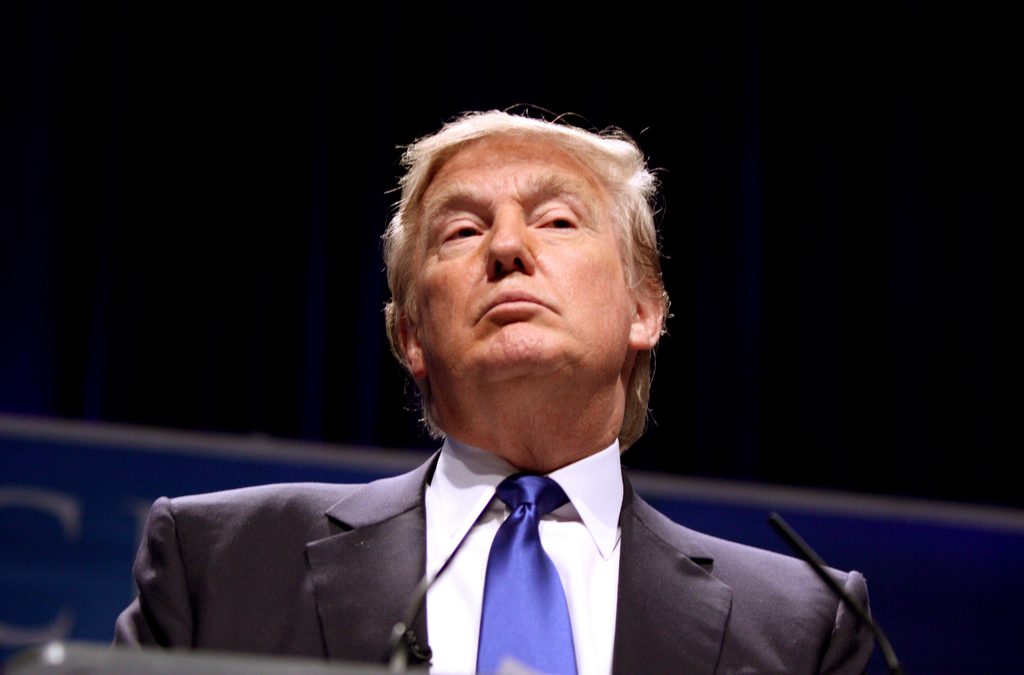WASHINGTON – A new international survey of public trust in institutions such as business, government, advocacy groups and news media shows a startling drop in confidence among the general population in the U.S. over the past year, despite solid improvement in the economy and stock market.
The 2018 Edelman Trust Barometer released earlier this week in advance of the annual international economic summit in Davos, Switzerland, reveals that trust in the U.S. “has suffered the largest-ever-recorded drop in the survey’s history among the general population,” according to a summary of the report. Indeed, trust among the general U.S. population dropped nine points to 43 percent, “placing it in the lower quarter of the 28 country Trust Index,” according to the report.
The loss in confidence was even greater among the so-called “informed public,” dropping 23 points to 45 percent – and making it now the lowest rating of the 28 countries surveyed, including Russia and South Africa.
The decline in confidence in public institutions coincided with the first year of President Donald Trump’s administration, and while the report doesn’t directly address Trump’s impact, researchers indirectly drew connections to the president’s relentless attacks on institutions, especially the news media.
The Edelman survey was conducted between Oct. 28. and Nov. 20 of last year. More than 33,000 people were interviewed in 28 countries in all fieldwork.
“We do know, from last year’s Trust Barometer, that the U.S. population is quite fearful, worried about issues such as immigration, globalization, the pace of change and eroding social values, “said Tonia Ries, executive director of the Edelman Trust Parameter. “Now we have an administration that continues to inflame many of those fears, as opposed to reassuring people or addressing them.”
Trust in the government dropped 14 points to 33 percent in the United States among the general population and 30 points to 33 percent among the informed public.William Hoagland, the senior vice president of the Bipartisan Policy Center and a former Republican Senate policy adviser, believes the term “government” has to be defined more specifically in surveys to better understand public sentiment. “When I see the surveys of trust in government, if you break it down, there is a fairly good support and trust of military, there is a good trust of our judiciary system, there is not a lot of favorable opinion of Congress, but the President himself is not popular either– less than 38 percent to 39 percent.”
By contrast, China – one of the U.S.’s greatest global rivals– finished at the top of the Trust index for both the general population – 74 percent – and the informed or better educated public – 83 percent. Institutions within China scored significant increases in trust, led by government, which surged eight points to 84 percent among the general public and three points to 89 percent with the informed public.
“Trust is a forward-looking metric. When people feel that their institutions are giving them high hopes for a better future, their trust will be higher than when people are worried about their future,” said Ries. “The China population right now feels that their government and other institutions are leading them to a better future, regardless of the political system.”
However, Hoagland suggests comparing United States with China is not fair, because it is harder to get honest survey responses from citizens of a totalitarian government than in more democratic societies. He said it was inevitable that people in China would say they trust their government. “What else can they say?” he said. “So, I am not denying they don’t respond that way but I would say it is kind of a biased survey,” he added.
The Edelman report points out that the media is listed as least trusted institution among the government, business and non-governmental organizations. Nearly seven in 10 people worry about “fake news” being used as a weapon. The survey found that in only six countries did more than half of citizens trust the media.
While 65 percent of the people receive news from social media platforms such as Linkedin, Facebook and Instagram or news applications, faith in those platforms decreased in 21 of 28 countries. In the U.S., confidence in the mdia dropped by 11 points – making it the biggest loss in faith on the list of 28 countries compared to the previous year.
“The media as an institution is undergoing disruption to its business model,” Ries said. “People’s understanding of “the media” is fragmented, with about half including social media platforms—and the other half not.”
“The real story seems to be a declining trust in search and social media platforms, which is casting doubt over all news information that is delivered on those platforms,” she added.
Hoagland says people today have a lot more information to absorb. “Whether it is right or wrong, a lot more information makes a lot more confusing, and makes it more difficult to say that they know what the truth is,” he said. “Therefore, they are willing to say that they don’t trust any information.”

